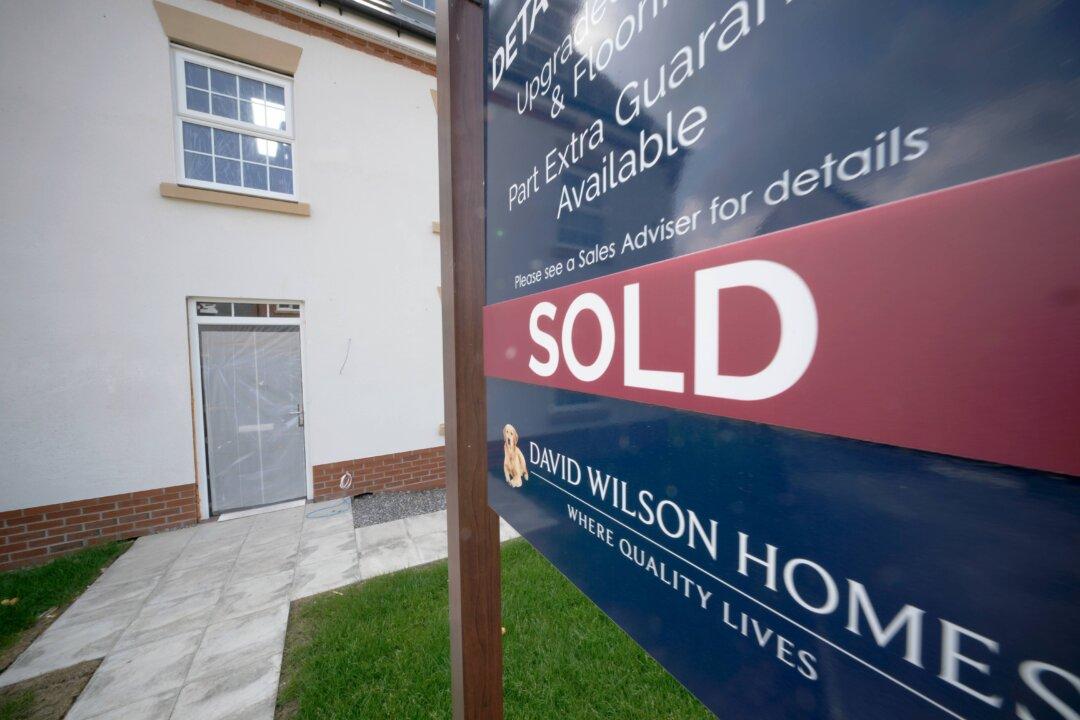The number of houses and flats sold in the UK this year is predicted to be the lowest in a decade, as buyers feel the impact of higher mortgage rates and cost-of-living pressures, a leading property website reported.
The house price index by Zoopla on the latest housing trends in August 2023 revealed a 21 percent net decline in property sales this year. It will be the lowest number of properties sold since 2012.





